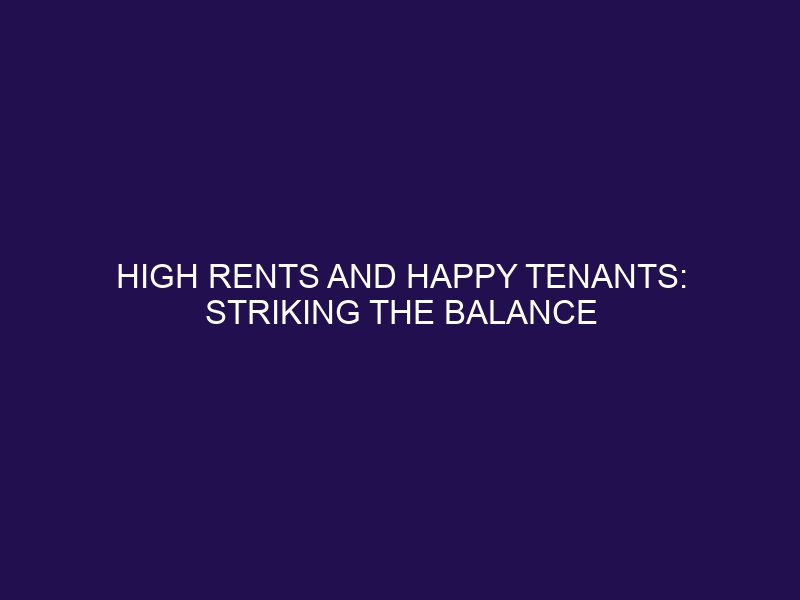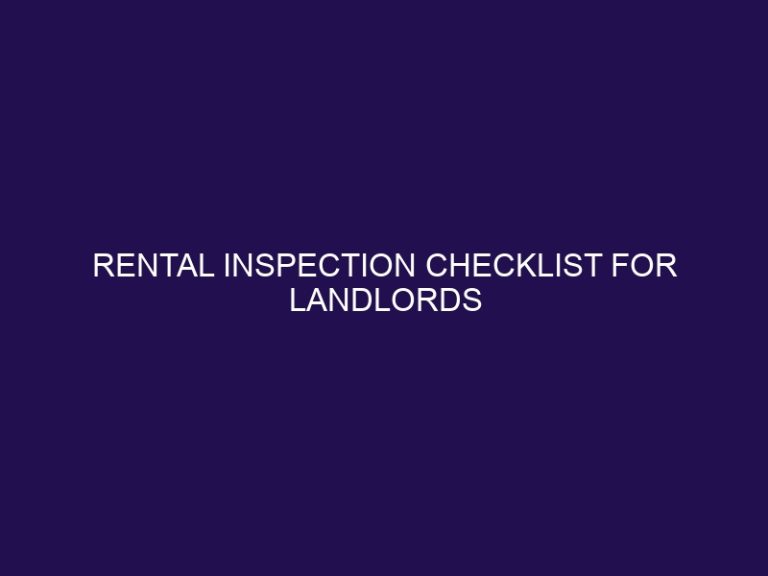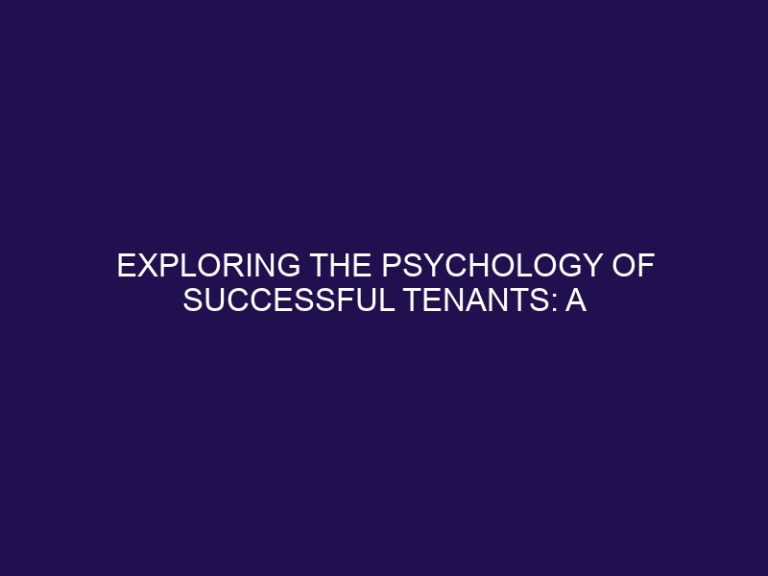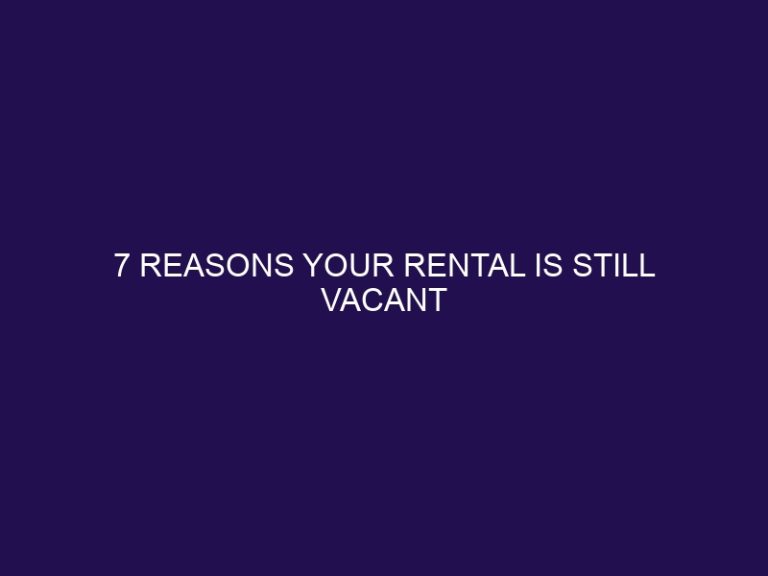High Rents and Happy Tenants: Striking the Balance
The rental market is a constantly evolving landscape, influenced by various economic, social, and cultural factors. Understanding the rental market is crucial for landlords to strike the balance between high rents and happy tenants.
Factors such as location, supply and demand, and the state of the economy can significantly impact rental prices. Currently, there is a trend of high rents in many major cities due to a shortage of rental properties. This, in turn, has caused a rise in housing costs for tenants.
Setting the right rent price is essential for attracting and retaining happy tenants. A fair and reasonable rent price can make a significant difference in the overall satisfaction of tenants. Landlords can utilize various strategies such as researching market rates, considering amenities and location, and communicating with tenants to determine the right rent price.
Keeping tenants happy is crucial for maintaining a positive landlord-tenant relationship. Common complaints from tenants include high rent prices, maintenance issues, and lack of communication. Landlords can address these complaints by being proactive in addressing maintenance concerns, setting fair rent prices, and fostering open communication with tenants.
Finding the balance between high rents and happy tenants is possible with the right strategies. Landlords can offer amenities and services that justify higher rent prices, such as on-site maintenance, security, and convenient location. Additionally, creating a positive and transparent rental experience through effective communication can also contribute to tenant satisfaction.
Effective communication plays a crucial role in maintaining a happy tenant-landlord relationship. Clear and timely communication can help address any issues or concerns that may arise and foster a positive and trusting relationship. Landlords can utilize tools such as regular check-ins, online platforms, and open-door policies to improve communication with tenants.
In conclusion, understanding the rental market, setting the right rent price, keeping tenants happy, and effective communication are all essential components in striking the balance between high rents and happy tenants. By implementing these strategies, landlords can create a positive and mutually beneficial relationship with their tenants.
Understanding the Rental Market
To gain a better understanding of the rental market, it is important to have knowledge of local demand, property types, and tenant preferences. By analyzing rental trends, vacancy rates, and economic indicators, investors can make informed decisions and set competitive rental prices.
What Factors Affect Rental Prices?
Location, property size, amenities, and market demand are all major factors that significantly impact rental prices. For example, in urban areas, being close to public transportation and entertainment venues can increase prices, while in suburban areas, having larger living spaces and available parking may affect costs.
What Are the Current Trends in the Rental Market?
Some of the current trends in the rental market include:
- A preference for remote work affecting location choices.
- A higher demand for rentals that allow pets.
- A growing focus on sustainable and energy-efficient properties.
- Furthermore, there is a surge in short-term and vacation rentals due to the popularity of platforms like Airbnb.
The Importance of Setting the Right Rent Price
Setting the appropriate rent price is essential for landlords as it is a key factor in attracting tenants, generating income, and preserving the value of their property. This process involves carefully analyzing market trends, taking into account property features, and evaluating the affordability of potential tenants.
How Can Setting the Right Rent Price Attract Happy Tenants?
- Setting a competitive rent price attracts tenants seeking value and ensures their satisfaction.
- Ensuring the price aligns with the property’s features and location is crucial in attracting and retaining happy tenants.
- Conducting market research to understand tenant demands and competitor rates is essential in setting the right rent price.
By setting a fair rent, a landlord gained loyal long-term tenants who valued the property and maintained it diligently, resulting in happy and satisfied tenants.
What Are Some Strategies for Setting the Right Rent Price?
When determining the appropriate rent price, it is important to conduct market research, analyze comparable rental rates, and assess the demand for the property. In addition, offering incentives such as flexible lease terms or inclusive utilities can help attract potential tenants and optimize the rental price.
Keeping Tenants Happy
- Maintain property upkeep to ensure a comfortable living environment for tenants.
- Respond promptly to repair requests, showing genuine concern for the well-being of tenants.
- Offer amenities such as communal spaces or fitness centers to keep tenants happy.
- Establish open communication to promptly address any concerns that tenants may have.
- Respect privacy and provide proper notice for property inspections or visits to maintain tenant satisfaction.
What Are the Top Complaints from Tenants About Their Rent?
Tenants frequently express their dissatisfaction with rent increases, inadequate maintenance, limited amenities, and noisy neighbors. Other common grievances include security concerns, unresponsive landlords, and unfair lease terms. By addressing these complaints, landlords can enhance tenant satisfaction and encourage tenant retention.
How Can Landlords Address These Complaints and Keep Tenants Happy?
- Timely Maintenance: Address repair requests promptly to enhance tenant satisfaction.
- Effective Communication: Foster open dialogue to understand and address tenant concerns.
- Respect Privacy: Give advance notice before entering rented premises.
How Can Landlords Address These Complaints and Keep Tenants Happy?
Finding the Balance between High Rents and Happy Tenants
To maintain a successful rental property, it is crucial to strike a balance between high rents and satisfied tenants. This can be achieved by prioritizing property maintenance, prompt communication, and fair rent increases.
Is It Possible to Have High Rents and Happy Tenants?
Is It Possible to Maintain High Rents and Keep Tenants Happy? This can be achieved by providing exceptional amenities, timely repairs, and respectful communication. Additionally, conducting surveys to understand tenant preferences and offering flexible lease terms can contribute to a harmonious relationship between landlord and tenant.
What Are Some Strategies for Finding This Balance?
To discover the balance between expensive rents and satisfied tenants, it is important to consider offering value-added amenities, maintaining open communication, and conducting regular surveys to gain insight into tenant preferences and concerns.
Moreover, promptly addressing maintenance requests and taking into account tenant feedback can help cultivate a harmonious rental environment.
The Role of Communication in Maintaining a Happy Tenant-Landlord Relationship
Open communication plays a crucial role in maintaining a positive and content tenant-landlord relationship. Consistent updates on property maintenance, rent matters, and mutual respect help to build trust and satisfaction. Clearly defined terms regarding repairs, lease renewals, and responsibilities also contribute to a peaceful coexistence.
How Can Effective Communication Help Maintain a Happy Tenant-Landlord Relationship?
- Establish Clear Expectations: Communicate lease terms, maintenance responsibilities, and rent payment details to effectively maintain a happy tenant-landlord relationship.
- Active Listening: Address tenant concerns promptly and show genuine interest in their feedback to foster a positive relationship.
- Regular Updates: Keep tenants informed about property maintenance, policy changes, and upcoming inspections to maintain a happy tenant-landlord relationship.
- Respectful Tone: Use courteous and professional language in all communications to maintain a positive and respectful tenant-landlord relationship.
What Are Some Tips for Effective Communication with Tenants?
To effectively communicate with tenants, it is important to be responsive to their concerns, maintain transparency about property updates, and provide clear channels for reporting any issues.
Another helpful tip is to organize periodic gatherings to foster open dialogue and address any questions or concerns in person.
When Can You Increase the Rent?
As a landlord, finding the right balance between keeping your rental rates competitive and maintaining profitability can be a delicate task. One key aspect of this is knowing when and how to increase the rent for your tenants. In this section, we will discuss the various factors to consider when evaluating competitor rent trends, as well as how to judiciously increase rental rates without alienating your tenants. Additionally, we will also explore alternative options to raising rents, ensuring that both you and your tenants are satisfied.
Evaluating Competitor Rent Trends
Evaluating competitor rent trends involves analyzing rental rates in similar properties within the vicinity, taking into account amenities and property condition. In 2018, a property management company in Atlanta utilized competitor rent trends to assess their rates, leading to a 10% surge in occupancy within six months.
Judiciously Increasing Rental Rates
- Evaluate market demand and rental trends to make a judicious decision about increasing rental rates.
- Assess property improvements or added amenities that may justify the rate adjustments.
- Consider tenant retention and satisfaction to ensure that the increase is fair and reasonable.
- Review lease agreements and legal limitations to avoid any potential conflicts.
- Communicate transparently with tenants about the rate adjustments, providing clear and valid reasons for the changes.
A property manager made the judicious decision to increase rental rates after making substantial upgrades, resulting in improved tenant satisfaction and increased demand.
Exploring Other Options
In considering alternative choices, landlords can provide incentives like gym memberships, parking discounts, or upgraded appliances to justify rental increases. Offering additional value can help alleviate tenant concerns about higher rents while also maintaining a positive landlord-tenant relationship.
Frequently Asked Questions
What are the factors that may lead to a need for a raise in rent?
The need for a raise in rent can be caused by a variety of factors, including property taxes, maintenance costs, inflation, and changes in the market. As a landlord, it is important to understand these reasons and communicate them effectively with tenants.
How can landlords strike the right balance between covering costs and maintaining good relationships with tenants?
Landlords can strike the right balance by following local laws and giving proper notice to tenants before increasing rent. It is also important to consider the market and make sure rental rates are competitive. Additionally, landlords should communicate with tenants and address maintenance issues promptly to maintain a good relationship.
What should landlords consider when determining the optimal rental rate increases?
When determining the optimal rental rate increases, landlords should research local rental listings, monitor demand, and evaluate competitor rate changes. They should also assess their renewal risk tolerance and consider the financial ability of their portfolio to absorb higher tenant turnover from price hikes.
How can landlords justify larger rent increases to tenants?
Landlords can justify larger rent increases by considering the value provided to tenants, such as extensive renovations or new amenities. They can also implement tiered increases based on tenancy length to reward loyalty and inch closer to market rates.
Is it necessary to give notice to tenants before increasing rent?
Yes, it is necessary to give notice to tenants before increasing rent, usually 30-60 days in advance. This allows tenants to review the new terms and either accept them or explore other options. Giving notice also builds trust and maintains a good relationship with tenants.
What should landlords do if they experience pushback or negotiations from tenants when raising rent?
If landlords experience pushback or negotiations from tenants when raising rent, they should listen to the tenant’s perspective and try to understand their reasoning. They can also consider smaller bumps in rent or allowing tenants to move on if they are unable to bear higher increases. Ultimately, finding a balance between business needs and tenant satisfaction is crucial.







